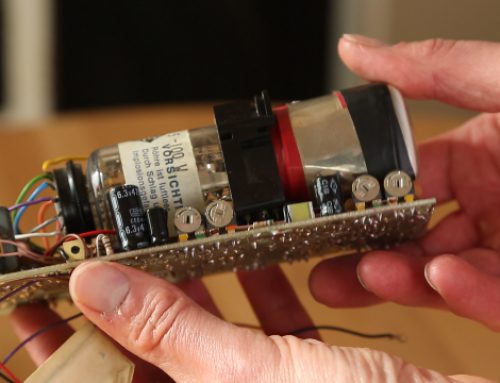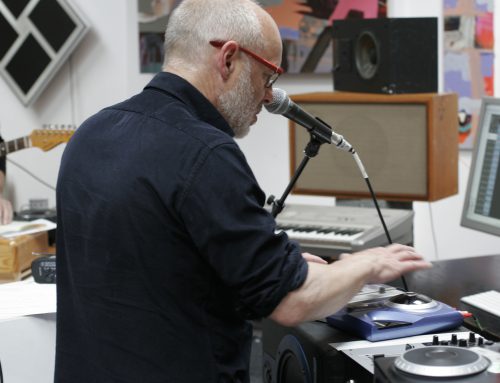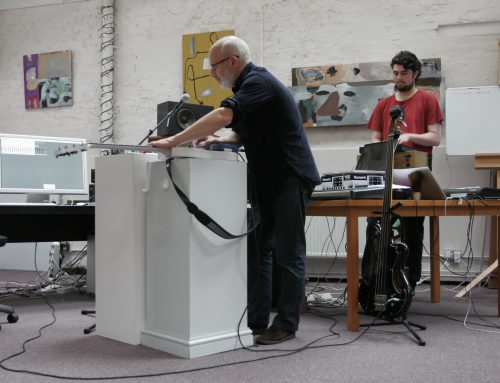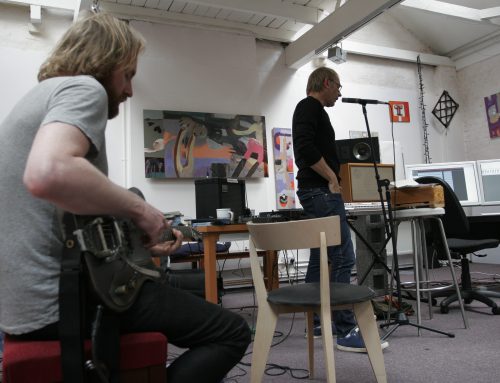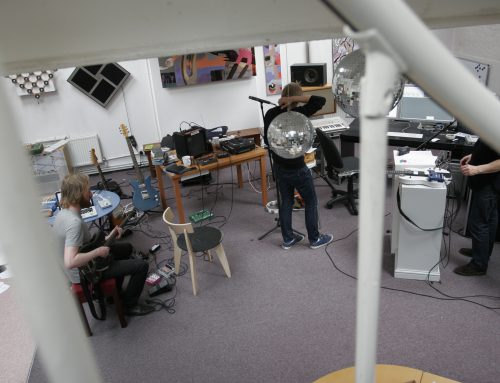In Part 2, we heard how the publisher and ghost writer worked to shape Lindsey’s story into the lucrative misery memoir format, while all the time insisting that it really was going to be her story. In Part 3 we find out how Lindsey’s own manuscript was dealt with during the editing process and the outcome of the final battle.
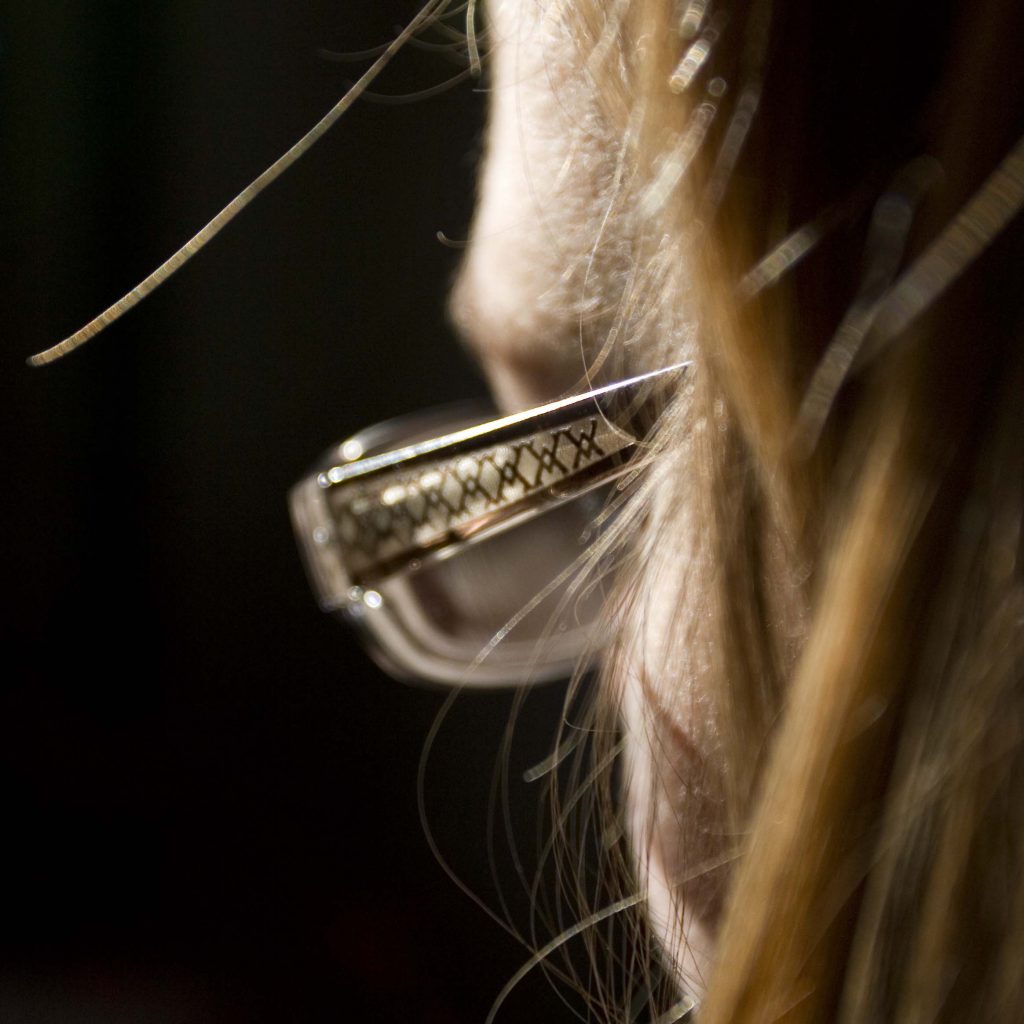
Lindsey Rosa
It became evident soon enough that the new editor was under strict instructions to bring the book back to the original plan the publisher had pushed for from the beginning. That is, focus on the Brethren and deflect attention away from my eating disorder and the difficulties I had joining society. The publisher was convinced that the reader wanted salacious details about a terrible life in a cult and would lose interest if I didn’t constantly harp on about it. As she once said to Tom during one of his long phone conversations with her, “Tom, books on anorexia don’t sell.”
The fact was I had spent only my first seven years in the cult, so the experiences I could remember of it were limited and child-like. What I did have was a story about isolation, separation and loss. The publisher obviously wanted vivid images of abuse, and horrific events – a series of factual headlines of horror that would make the reader gasp and read on to get their next hit. Imagine how I felt trying to convince them that my life had been pretty tough, but not in the way they wanted to be!
This from the new editor:
“The material in the first half about the Fellowship is inherently fascinating… But I do have serious concerns about the latter half of the book, once you strike out on your own. The material on Tracy, the various jobs and interests you try, and the back story about Tom, are difficult to follow and I worry whether they will keep the readers’ interest… It’s very difficult to ‘edit’ your own life, but we have to be strict here, and think always about what’s going to grab and then keep the audience’s attention. We need as often as possible to relate your journey back to the Fellowship.”
In other words, my life beyond the Brethren was of no interest. It was very difficult for me to try to make them understand that my years in isolation, adhering, as my parents insisted, to the Brethren doctrine of separation from the outside world, whilst being rejected by the Brethren themselves, informed the latter part of my life, my relationships and decisions. It seemed to me that this – the long-lasting psychological effect – was the interesting thing. But this did not suit the format of the misery memoir which apparently relied on short sentences, showing and not telling and, of course, a happy ending.
Another thing they were keen to remove was humour. For them, it was something else that didn’t fit with the misery memoir format, which seemed to demand that the character remained completely innocent throughout in order to capture the sympathies of the reader. Any cynicism, sarcasm or flippancy, no matter how representative of the person in a given situation, was a prime target for removal.

Email on 20th July from the new editor, still trying to move the project back to the phantom plan agreed by the ghost writer and publisher, but not the author!
Edit Your Life!
What the publisher wanted, as outlined in one of their emails, was for me to conclude the book at the birth of my second child, which I had told the ghost writer was the first time I had really felt deep, unconditional love. Apart from ending on an unnecessarily nauseating note, I believed that by not allowing me to share with the reader the subsequent events, it would be utterly misleading.
To protect myself from ridicule at school, I had developed a method of self preservation, which involved shutting down my emotions and disconnecting from other people. This made me cold and capable of behaving in a way which, on the face of it, appeared selfish. The publishers were extremely worried that my inclusion of the truth about my actions and behaviours would lose me sympathy with the reader, who was supposed to view me as the innocent victim.
Being commercially minded, the publisher didn’t understand that I had no particular interest in what their typical reader wanted from a book. But I was not writing for them, I was writing the truth of my life in the belief that other people would relate, perhaps not to all of it, but parts of it, and might be reassured to know that someone else had had similar experiences to them. To my mind, if the reader did not like what they read then they had the free choice to stop reading. I could not see, and still don’t, what is to be gained from manipulating the reader into believing something that just isn’t true. I hated the idea of my book following a formulaic ‘arc’ that deliberately and cynically dictated the reader’s emotional responses.
I continued to fight my corner with Tom, unbeknownst to them, backing me up, or, as it was by then, propping me up. I dreaded every email and conversation. Matters weren’t helped when I discovered that the ghost writer had been given the job of copyeditor! Alarm bells rang when I received text from the copyeditor which contained information that only the ghost writer had. Once again, I felt terribly let down. I couldn’t have expressed my dissatisfaction with the ghost writer more clearly and more often than I had and here he was being drafted back onto the job behind my back. Suddenly it looked as though we hadn’t won the battle, it was just beginning.
I remember a long conversation with the editor on the telephone during which I indirectly challenged her about their using the ghost writer again. As I remember it, she avoided admitting that it was him, although her carefully chosen words confirmed what I suspected. I tried desperately to appeal to her as one human to another, but as kind as she was, I realised her hands were tied. Her loyalty lay with the publisher and she was going to carry out her instructions.
Following that conversation Tom rang her and told her not to underestimate my desperation and determination and that he believed I would withdraw from the competition, even at that late stage. In Tom’s view, she finally gave up when he pointed out that the publishers would soon be done with the book and move on to another, forgetting all about it, whereas we would have to live with it as a document of our lives for the foreseeable future. We would have to explain it to our friends, children and relatives. And therefore it didn’t matter to us about the sales figures, just that it was a true representation of me, my attitudes and the lives of my family. She promised she would have a meeting with the publisher.

Stairway to disappointment!
Call for Backup
It was then that we were contacted by the TV program’s series editor, who had become aware that there were problems and wanted to sort things out before screening. I was out when he called so if fell to Tom to explain the situation and put across my side of the story. The series editor asked if he could read the text we had written so he could let us and the publisher know what he thought. We spent the weekend nervously waiting for Monday morning to come.
When he spoke to us again he seemed to agree with the publisher that it was important I came across as a ‘sympathetic character’. Apparently the way I had written it made me sound cold. Once again I explained that if I sounded cold it was because I really had been cold and the book shouldn’t be changed to suit the demands of the format, just because I was an unsympathetic character. I put the phone down feeling incredibly upset and even more isolated.
We had reached a stalemate and things went quiet for a day or so while some unspecified meetings took place at the publishing house. At the end of it all, the editor announced that she was going to stop using the current copyeditor and employ the services of an independent copyeditor whom she had used several times before.
I didn’t know if this was another ploy by the publishers, but I needn’t have worried. Judging by this new broom’s use of word annotations, mark-up formatting and detailed edit lists, it was clear that she was a bona fide copyeditor who knew her job and did it very well. We felt a hugely relieved. Her technique couldn’t have contrasted more that it did with the previous copyediting we’d seen. For example, she picked up many technical and grammatical errors which had been missed before, making us feel that we were justified in our doubts about her predecessor and not simply imagining things. Her comments were tough in places but we could follow her logic and felt that they were fair. And, best of all, she confirmed to the editor, who had expressed her concerns about the content and the layout of the book, that it was a moving story that was told well. I should have felt happy, but by that stage I just wanted to get it over with.
Bit by bit the book came together, Tom and I typing madly to amend text here and there, having finally received some relevant and constructive feedback. I still received the odd email from the publisher, who accused me of holding up the process by not responding immediately to emails. Little did it matter to her that I had two children and a job. It felt incredibly unfair that I worked hard to fulfil their requirements and returned text to them extremely quickly, only to be met by days of silence. Then, out of the blue, would come a demand for me to work on some other stage of the process, reiterating the lack of time available. Just as quickly I would set to it, but if my turnaround was longer than a day or two, I’d usually receive another terse email.
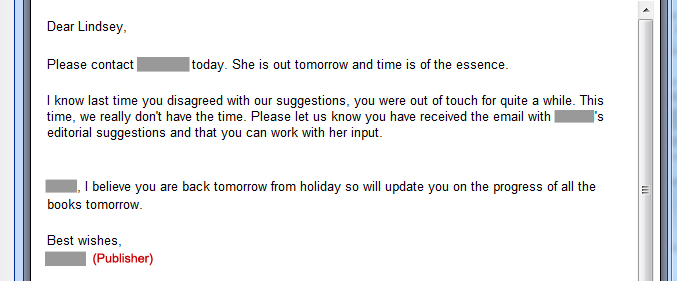
The Publisher became rather less friendly, yet suddenly very concerned with time, after Lindsey’s sent in her manuscript!
Is This Promotion?
Late on in August I was asked to go to London to be filmed talking about my book, and the trip was to include a visit to the publishing house to meet the editors and marketing team. Tom came with me – there was no way I could face any of these people on my own and I was dreading it. I felt drained of emotion following the weeks of stress and tension. All I wanted was to get it over and done with as quickly as possible.
Once we arrived in London we were whisked away by taxi to a residential house on a leafy suburban street. We discovered it belonged to a television producer who was letting filming take place there because the original plan to film the book zooming of the printing press hadn’t materialised.
Running the operation was the editor of the TV series. Having rattled through the small talk, he directed me to the kitchen where the filming was taking place. Tom immediately got up to follow but the series editor, slightly anxiously, pointed a finger at him and snapped, “Not you.” It became obvious why he didn’t want Tom present.
The camera on me, I did my best to look pleased, and even managed a small “Oh,” as the series editor suddenly, without warning and in mid conversation, slid a book towards me across the table. I immediately picked it up, flicked it open and said, “Oh, it’s not my book!”
What I was holding was a randomly selected book covered with my sleeve art. Although it was intended that I would receive the first copy of my book that day, the print date had moved and so it had yet to been printed. It was obvious from the series editor’s annoyed response that I had messed up. I gathered that his intention was to surprise me with my book and capture my amazed and joyful reaction on camera so it could be used as part of the TV series, but even the cover was not a surprise to me, as we had approved the artwork weeks earlier. He tried the move again and I attempted to fake surprise and express enthusiasm and joy, but what moment there might have been was gone. Numerous takes and half an hour later I felt devoid of all enthusiasm, but he would not stop. He tried coming at it from every angle, but my voice grew quieter until no words came out. I started to cry. I wanted to perform so I could leave but just could not.
The series editor got up, walked around the table and started a lecture. “Let yourself feel proud, the way you weren’t allowed to when you were growing up,” he breathed at me. I remember I felt my whole body stiffen. I was outraged that he thought that I couldn’t feel proud of this book because of some damage that had been done in childhood. I had shared my anguish over the writing of my book with this man, and consequently he knew very well why I was now finding it near impossible to feel any positive emotion. His deliberate misinterpretation of my distress sufficiently disturbed me so that my tears dried up. Needless to say I forced myself to finish the filming process, holding my emotions in until I left the building and was free to breathe clean air on the street outside. I turned to Tom who simply said, “I was listening at the door and I nearly came in to stop him.”

So, who’s this about?
Meet and Greet
Once again we travelled across London by taxi. Inside the publisher’s impressive headquarters, I was ushered into a room to be filmed for a YouTube promotional video. Fortunately the publisher herself did not appear and my current editor only made a very brief appearance, all smiles and handshakes, before disappearing.
I was promised that I would meet the publicist to talk through the promotional strategy for my book, but my video went on for too long and the meeting never happened. In fact no one ever did contact me in spite of repeated promises. We had a brief opportunity to grab at the buffet lunch that had been laid on for us in a deserted side office, before we were told our taxi had arrived to take us back to the train station. By this time the editorial team were nowhere to be seen.
During the latter part of the process, the publisher sent through their cover text for my approval. Unsurprisingly, given their rather myopic view of what the book should be, it made nomention of anorexia and focussed almost entirely (using rather unrepresentative and sensational descriptions), on the Brethren aspect of the content. Exhausted and eager to move forward, we decided to let them have their way with it, as it would keep them happy and didn’t matter so much because it was not claiming to be anything I had said. I rather regret that decision now, though, asunfortunately the publishers used the same blurb on every promotional websites so, in the end, no one buying the book got what they were expecting!
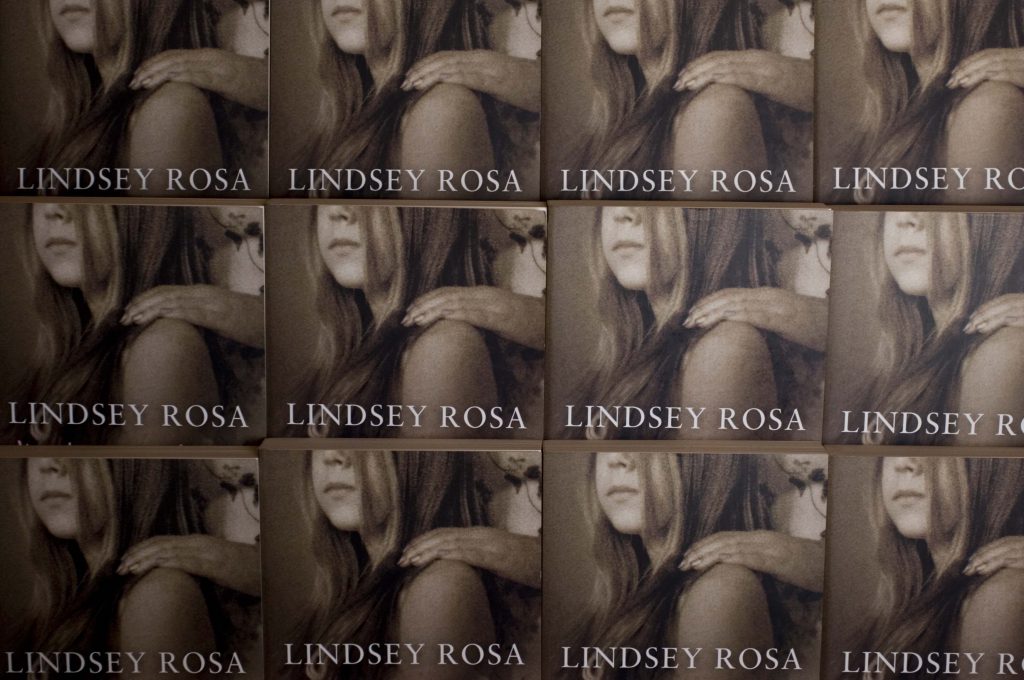
Books…
Epilogue
Tom and I, having previously agreed we wouldn’t, found ourselves watching the TV film. The next day I waited for the call from the publicity team that the editor promised. Early on in the process, there had been talk of a possible press frenzy, but as our battles progressed, that kind of talk fizzled away. When I eventually asked as to when the publicity girl, Emma, would get in touch, my editor sent an email saying, “It is hard for us to get any publicity lined up in advance because we are unable to reveal to any press who wins each episode… with the other categories so far Emma has done a fantastic job so far of getting interest after the programme has aired.”
I emailed and I called, but Emma was silent. I even spoke to the publisher herself, but two years have passed and I’m still waiting for the publicity to begin…
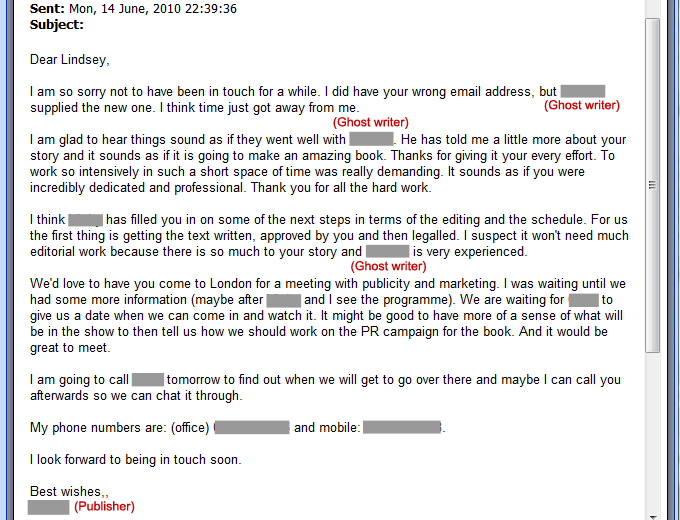
This early email talks about marketing and meeting the team. It didn’t happen
I grew up in a sect that dictated everything that I did, right down to the exact nature of the clothes I wore and the people I associated with. Its rules were considered divine in origin and beyond question, and if I broke them I would be kicked out. This was the abnormal upbringing the publishers wanted to sensationalise. Yet I found myself in a situation in which the publishers and the television production team were presenting me with their own strict set of rules dictating who I could speak to about the book, how it should be written, what my written voice should sound like, how I should react when receiving my first copy and even the outcome of my story itself. When I challenged these rules, just like the Brethren would have done, the publishers and television producers closed ranks and effectively kicked me out of their circle, the one which they had been so desperate to welcome me into when they believed I would be compliant with their formula for success.
I have waited two years to share this experience with a wider circle of people beyond my friends and family. While I have little interest in revealing the identity of those involved, I feel a strong desire to express my disappointment in the entire process and the people involved, not to mention my disillusionment at the lack of regard for truth that I encountered over and over again.
Obviously my experience is a personal one, and the circumstances unusual, but I can’t help wondering how many books that are written by ghost writers are full of exaggerations and falsehoods. We have all read at least one ghost written autobiography of our favourite actor or actress, comedian, singer or politician. So the question is this: are you, as a reader, more interested in reading the absolute truth about a person’s life, or are you willing to forsake truth for entertainment’s sake and the guarantee that you will laugh, gasp and cry in all the right places and in the right order? I’ll go with truth every time, and where I can’t be sure that it exists, I’ll stick with fiction. LR/PP
Part 1 of How True are ‘True Stories’? can be found here: Part 1
Part 2 of How True are ‘True Stories’? can be found here: Part 2
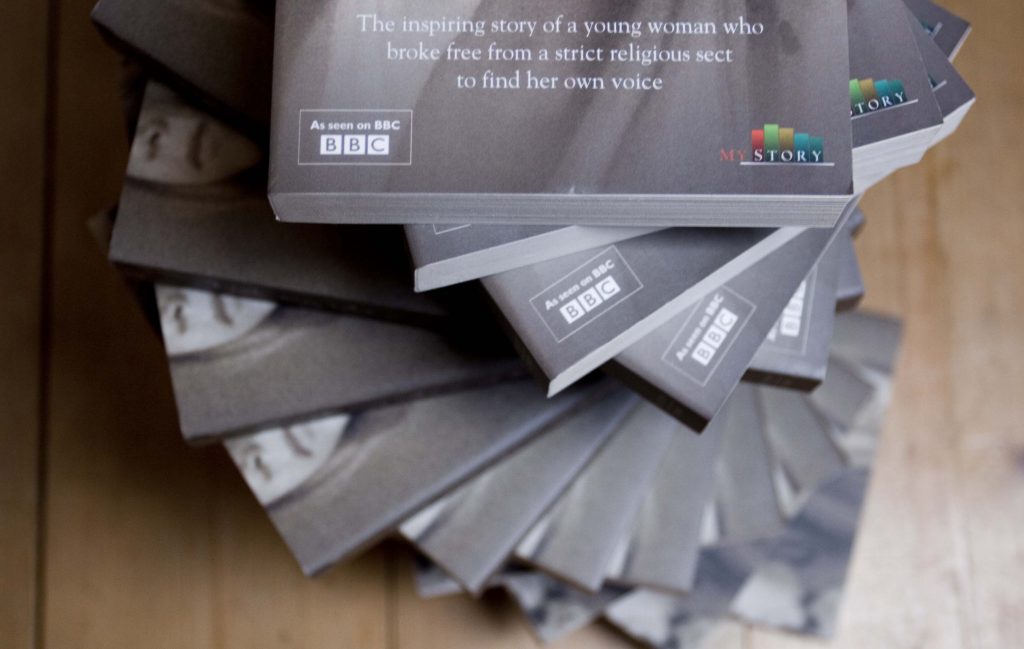
The inspiring story of a young woman who broke free from a… publisher?

